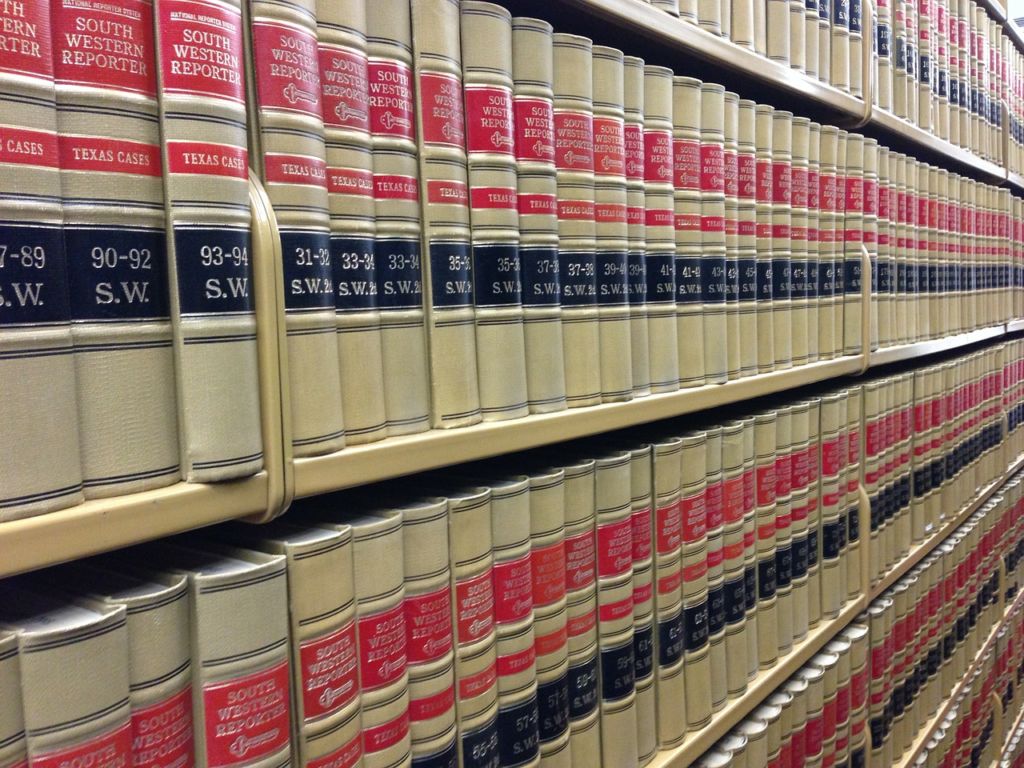 We recently wrote a blog post where we described the difference between a trial and appeal. In this blog post, we’ll explain the two primary components of an appeal: oral arguments and the brief.
We recently wrote a blog post where we described the difference between a trial and appeal. In this blog post, we’ll explain the two primary components of an appeal: oral arguments and the brief.
Table of Contents
ToggleMost Cases Are Won or Lost with the Briefs
When appellate judges decide how they will rule on an appeal, they have four main things to examine:
- The record from the trial court. This consists of court transcripts, pleadings and exhibits introduced as evidence at trial.
- The trial court’s opinion of its decision. The opinion is an explanation of how and why the trial court came up with the original verdict.
- The brief each side will submit to the appellate court to explain the reason why the appeal should be decided their way.
- Oral arguments (although not all appeals will include oral arguments).
Based on the above, it’s easy to see how the brief is the single most important tool to try and persuade the appellate judge. The record is set and there’s nothing the parties can do about it (most of the time). The opinion is written by the trial judge and will justify the verdict from the trial court. Oral arguments are not guaranteed to be held and even if they were, they usually have little effect in changing the minds of the judges. So that leaves the briefs as the only guaranteed opportunity to present the case during an appeal.
Common Traits of Effective Briefs
There are several general characteristics that most effective appellate briefs share. First, the brief will focus on just a few of its strongest legal arguments, with the strongest argument usually coming at the beginning of the brief. It’s really easy for attorneys to feel the urge to throw as many legal arguments as they can and hope that some of them stick. But when this happens, it dilutes the persuasiveness of the strongest arguments.
Second, the brief will be as short as possible. Appellate briefs are typically dozens of pages long and it’s easy to add more words and pages than necessary in the hopes that it will make the brief appear stronger. But when it comes to appellate briefs, “less is more.” It’s one thing if more words are needed to fully explain a legal position. It’s quite another to add more words simply for added emphasis.
Third, the brief will perfectly follow the formatting guidelines. Appellate courts are notorious for imposing nitpicky requirements for their briefs, such as page length, font style, spacing, number of pages, color of pages, margins and so on. One of the easiest ways to either annoy an appellate judge or come across as not caring is to have an appellate brief that doesn’t follow the formatting guidelines.
There are many more guidelines to keep in mind to have the most persuasive appellate brief possible, but the above gives a general idea of some of the more universal traits a good brief will have.
Oral Arguments
Oral arguments may make up the most stressful part of an appeal, but they’re usually the least influential. The appellate judges will have read the briefs and trial court opinion, as well as examined the trial court record. By that point, they already have an idea about how they want to decide the case.
Oral arguments usually provide an opportunity for the judges to confirm their original decision. In some cases, a judge may be on the fence on how to rule and will use oral arguments to get more information or have some of his or her questions answered. A good way to think about these arguments is that it’s much easier to lose a case on oral arguments than win them on oral arguments.
Finally, oral arguments aren’t always required or even allowed. The parties on appeal may choose not to have oral arguments or the appellate judges may decline to hold them. It’s not surprising for the side that won at trial to not ask for oral arguments, especially when it has submitted a strong brief and there are no new or complex legal theories at issue on appeal.
Don’t Worry About the Statistics
Unlike many other professions (especially sports), the legal world isn’t usually too caught up in statistics. One exception to this generalization is the appeals process. Appellate courts usually keep detailed records on appellate statistics, such as time it takes to resolve an appeal and the rate at which certain cases get reversed.
When deciding whether to file an appeal, it might be easy to focus on the statistics to help decide what to do. Try to avoid this temptation because these statistics are easily taken out of context.
For example, the chances of a federal appellate court reversing a lower court’s ruling in a criminal case are smaller than in a non-criminal manner. Does this mean that it’s “harder” to appeal a criminal case versus a civil one? Not necessarily. Keep in mind that part of the reason criminal cases are reversed less often is because there are more “long-shot” appeals in criminal cases.
It’s not surprising that a criminal defendant who has just been sentenced to life in prison will feel like he or she has nothing to lose when filing an appeal. Compare this to a corporate appellant who just lost a sexual harassment claim and is looking at the possibility of several more years of public litigation and several hundred thousand dollars in legal fees by filing an appeal. So in civil matters, the cost-benefit analysis is more likely to be tilted towards not filing an appeal than in a criminal case.
The bottom line is that every case is different. It might help to look at some statistics when assessing the likelihood of success on appeal, but take those numbers with a generous tip of a salt shaker.
Summing It Up
- Besides the facts of the underlying case itself, briefs are the single most influential part of an appeal.
- Effective appellate briefs are concise, only address the strongest legal arguments and pay close attention to the formatting guidelines.
- Oral arguments usually have only a small impact on deciding a case on appeal.
- Each case is unique, so it’s hard to predict its success on appeal by only looking at appellate statistics.
For More Information
If your case recently ended and an appeal seems likely, please contact us for a no cost online review of your case. Please keep in mind that if you plan on filing an appeal, your time to do so may be limited, so you’ll need to act quickly.





